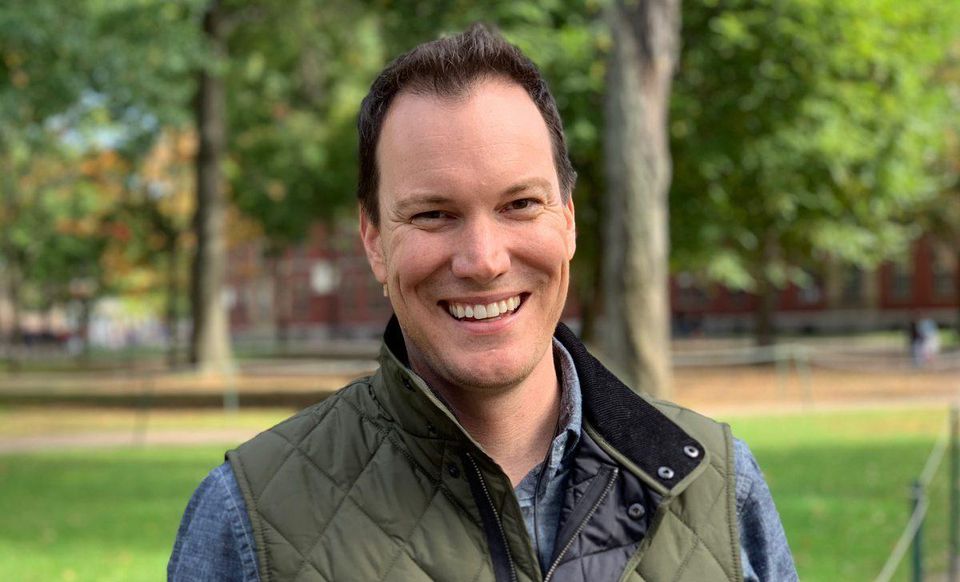
Bestselling Author Shawn Achor On The Secrets To Happiness
Article Published by: Forbes.com
I interviewed Shawn Achor, the New York Times bestselling author, on the secrets to happiness. Shawn and I discussed a wide range of topics, including the best ways to create happiness, what prevents people from being happy, how to increase positivity at work, the importance of social connections, how to reduce stress, how happiness can make us better leaders, and what makes Shawn happy.
Zack Friedman: What’s the best way to define happiness?
Shawn Achor: I define happiness as the joy you feel growing toward your potential. This definition is actually crucial; otherwise, we pursue happiness the wrong way. If happiness is pleasure, it is short-lived and increasingly hard to get. But joy is something you can experience even when life is not pleasurable (like during child-birth or a tough football game). And this type of happiness is not static—it doesn’t make you complacent. This is the joy you use to fuel yourself to see your true potential.
Friedman: What are the three best ways to create happiness?
Achor: Gratitude, social connection, and altruism. You can transform any event or environment by being grateful for it. The greatest predictor of long term happiness is social connection. And altruism creates the greatest return on your investment in terms of positive actions. All three require effort, habit and discipline, but they pay off by making happiness easier.
Friedman: What’s the number one roadblock that prevents people from being happy?
Achor: Believing that happiness isn’t possible. When you ask someone why they are unhappy in life, they will point to something in their environment or genes which predispose them to negativity. Genes and environment do set the initial baseline for happiness, but that is not the end of the story. We have found optimistic and happy people in some of the worlds most difficult and stressful environments, and if you take someone who has been a pessimist their whole life and have them practice scanning for three things they are grateful for for at least 21 days, their optimism rises above their genetic threshold. Change is radically possible. The average person, however, does not fight their genes and environment, which is why we initially thought genes and environment determine everything.
Friedman: You’ve said that the greatest competitive advantage in the modern economy is a positive and engaged workforce. What proactive steps can companies take to raise positivity at work?
Achor: Invest in the physical, social and emotional well-being of your employees. At one large insurance company I worked with, they spent 10 minutes a day off the phones (where they make money) and had them meet in huddles where they connect, talk about a success and emotionally check in. It should be simple: less time on the phones means less money. Revenues grew 50% over the next 18 months after previously flat-lining, and the division went from the lowest engagement scores to one of the highest in the company. Invest in coffee breaks, fund your team working together on an altruistic task, encourage social activities that bond you like fantasy football or book clubs (old fashioned leaders calculate the time you’re “wasting” on social activities—then they will spend a ton trying to hire new people when their disengaged, overly stressed and disconnected workers want to leave). Praise more: at LinkedIn, we found that if employees received 3+ touchpoints of praise over the year, retention rates for new hires went from 80% to 94%.
Achor: Every single business outcome improves when the brain is positive. Sales rise by 37%, productivity rises by 31%, likelihood of promotion rises by 40%, and the list goes on. We live longer, our symptoms are less acute, every educational outcome from memory to intelligence to graduation rates rises significantly, trust rises, connections deepen, depression and anxiety drop. The brain is designed to work best at positive.
Friedman: What are your favorite tools to reduce stress?
Achor: Embedded within every stress is meaning. If I tell you someone is failing English, you don’t stress. If I tell you your kid is failing English, you feel stress because there is meaning in that relationship. In a study I quote in Big Potential, we found that if you reconnect to the meaning in stress and channel the stress response toward that meaning, your stress doesn’t drop, but the negative impacts do. Dramatically. In the middle of the banking crisis within a three week period, 23% of the negative impacts of stress had evaporated. So figure out why you care, then focus on that instead of just trying to run from stress.
Friedman: In your latest book, Big Potential, you write that “things can’t be good for one individual unless everyone in the community is thriving.” This suggests that to reach one’s full potential, individual achievement alone is insufficient.
Achor: For example, we love to lift up thinkers, but no one publishes a book alone. They had teachers, editors, a publisher, supportive friends, other authors to reference—and all that is before readers. Potential that we achieve alone is capped unless we connect with the ecosystem around us. Fireflies that light up individually and randomly have a 3% success rate at reproduction. When they light up together with a community, like they do in only two places in the globe, the success rate goes up to 82%. The problem is that this effect is masked in humans because for the first 22 years of life we are judged individually, taking tests in isolation, when for the rest of our lives our successes are interconnected. This is why superstars underperform when they don’t have good social connection with their team. And if you want happiness to be harder, just pursue it alone as if it was “self-help.”
Friedman: How can we use happiness to become more effective leaders?
Achor: Happiness, like negativity and stress, are highly contagious traits. If you want a team to be more positive, tell them what steps you’re taking to become more positive yourself. Praise, reward and promote those who don’t just “hit their numbers” but make your job of creating a positive team easier. Start meetings with the positive and the successes, rather than jumping into problems. Tell your team that happiness leads to success not the other way around. Prioritize happiness in your own life.
Friedman: What makes Shawn Achor happy?
Achor: I’m working with all the schools in Flint Michigan, and it makes me so happy and hopeful seeing how much lives can be changed when we are positive and we surround ourselves with people who believe their behavior matters. That makes me happy.
About Scott Livengood
Scott Livengood is the owner and CEO of Dewey’s Bakery, Inc., a commercial wholesale bakery with a respected national brand of ultra premium cookies and crackers.
Previously, Scott worked at Krispy Kreme Doughnuts for 27 years, starting as a trainee in 1977. He was appointed President of the company in 1992, then CEO and Chairman of the Board.
Scott has served on numerous boards including the Carter Center, the Calloway School of Business and the Babcock School of Management, Habitat for Humanity of Forsyth County, and the Winston-Salem Chamber of Commerce.
He started a new business, StoryWork International, in 2016 with Richard Stone. The signature achievement to date is LivingStories, a story-based program for improved patient experiences and outcomes in partnership with Novant Health.




